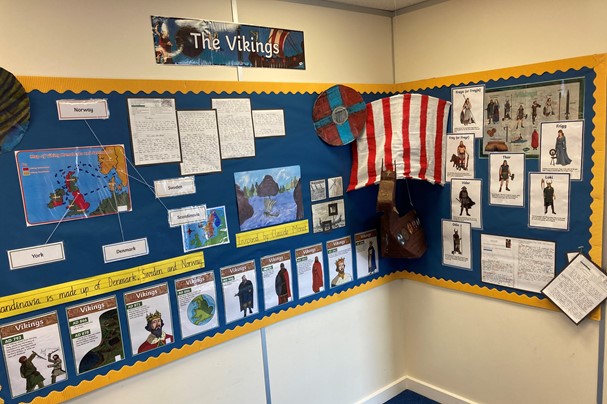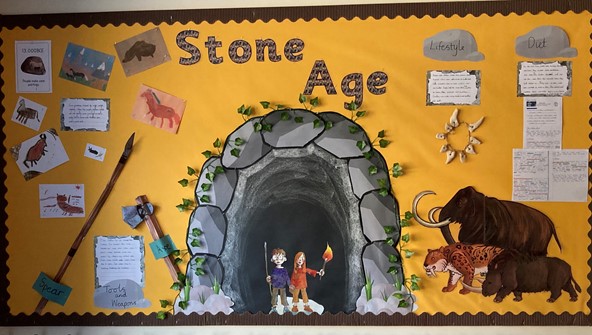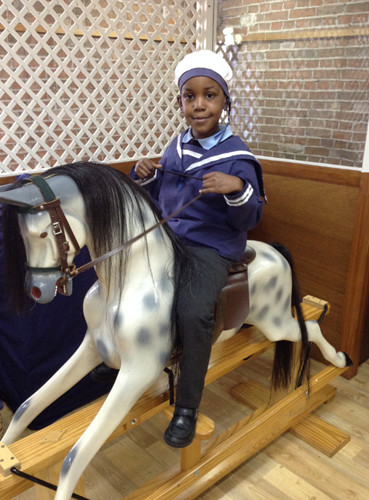
History
William Reynolds Primary School, we recognise the importance of stimulating the pupil’s interest and developing their understanding about the past, both in Britain and the wider world. Pupils will develop their enquiry skills, using evidence available to them, which they will use to draw conclusions about what life was like in the past, helping them to understand the world today.
Our three principle aims – following the National Curriculum in England - for History are for pupils to:
- know and understand the history of these islands as a coherent, chronological narrative, from the earliest times to the present day: how people’s lives have shaped this nation and how Britain has influenced and been influenced by the wider world
- know and understand significant aspects of the history of the wider world: the nature of ancient civilisations; the expansion and dissolution of empires; characteristic features of past non-European societies; achievements and follies of mankind
- gain and deploy a historically grounded understanding of abstract terms such as ‘empire’, ‘civilisation’, ‘parliament’ and ‘peasantry’
We are committed to encouraging children to enjoy asking and answering questions about the past, as well as making full use of resources to support their learning.
Intent
At William Reynolds Primary School and Nursery, our History curriculum is shaped by our powerful school vision: “To be the best we can be.” We believe that transformational education begins by nurturing confident, resilient and reflective learners who can think critically about the world around them. History provides the context for children to develop their values, understanding, and empathy by exploring how the past has shaped society, culture and individual lives.
Guided by our Rainbow Values: Challenge, Honesty, Ownership, Courage and Collaboration, we support children to see themselves as historians who ask questions, think deeply, value evidence, and reflect on cause and consequence. We aim to develop not only historical knowledge, but also character, curiosity, and an understanding of right and wrong.
Our curriculum is coherently built around six core substantive concepts:
Invention: how human creativity and technology have changed lives
Settlement: where and why communities have formed
Invasion: how conflict and conquest shaped cultures and borders
Agriculture: how farming and food shaped civilisations
Monarch: the role and power of individual rulers
Empire: how expansion and control influenced the world
These concepts are revisited across the curriculum in diverse contexts, supporting pupils in building deep, connected understanding and developing their own sense of identity and purpose through the study of the past.
Implementation
We deliver a rich, sequenced and concept-driven History curriculum through carefully planned units that follow the EYFS Framework, the National Curriculum, and draw on best practice from the Key Stage History scheme.
Key implementation features include:
- EYFS foundations built through storytelling, role play, artefacts, and exploration of familiar historical concepts like past and present, change, and memory.
- In KS1 and KS2, each unit is mapped to one or more substantive concepts, revisited in new contexts for depth and retention.
- Disciplinary knowledge is taught explicitly through historical enquiry: children learn to use sources, ask questions, make comparisons, and develop chronological understanding.
- Timelines, knowledge organisers, and dual coding strategies are used to support memory and schema-building.
- Vocabulary is taught deliberately, building from simple terms in EYFS to complex historical language in UKS2.
- Lessons reflect diversity and relevance, including local history, global perspectives, and inclusive representation.
- High-quality CPD, coaching, and subject leader guidance ensures consistent progression and pedagogy across school.
Impact
Our History curriculum enables children to:
- Securely understand and talk about key events, people, and developments in British and world history
- Use appropriate historical vocabulary and concepts to explain ideas and connections
- Apply historical enquiry skills with increasing independence
- Reflect on cause, consequence, significance, and change across time
- Understand how the past influences their lives and the modern world
We assess impact through:
- End-of-unit retrieval tasks and knowledge catchers
- Pupil voice and work evidence
- Formative assessment of both knowledge and skills
- Monitoring of progression in disciplinary and substantive knowledge from EYFS to Year 6
By the end of their time with us, our children will not only have a strong foundation in historical knowledge, but also the confidence and curiosity to continue exploring the past and questioning the world around them and support them ‘To be the best we can be.”
 .
.

History Progression of Substantive Knowledge







